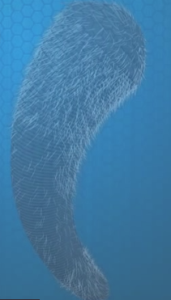Medically termed as enterobius vermicularis, pinworms are worms or parasites that infect the intestines. Pinworm infection is more common in children than adults and is marked by intense itchiness in the rectum area; such itching can cause increased agitation and irritability in children.Pinworms affect all people, including unhealthy persons, hygienic persons, as well as those living in clean surroundings.
Pinworms are slender, white, and strand-like worms that live in the human intestine. Humans are the only host of pinworms. Male pinworms are 2 to 5 mm long, while female pinworms are much bigger at 8 to 13 mm in length.
Transmission occurs due to accidental swallowing or the worms, which then go to the intestines, hatch, and then mature. After the female worms become adults, they move towards the fold of the anus and lay their eggs. The eggs cause itchiness and people scratch the anus to alleviate itching. This causes the eggs to transfer to the nails and hands, thereby causing pinworm infection to spread to others. After pinworms enter the human body, they tend to live in the large intestine as it offers easy access to nutrients present in food. Pinworm infection can be easily cured.
As children are more prone to pinworms, doctors usually advice parents to give anti-worm medicines to their children once every 6 months to create resistance and prevent the infection. America has nearly 40 million cases of pinworm infection. It is the most widespread and common infection on the planet.
Symptoms of pinworm infection
Pinworm infection does not cause many symptoms in infected adults or children. In most cases, the only sign of pinworms is the intense itching in the anal area after the eggs have been laid there.
Listed below are some of the symptoms which may accompany a pinworm infection:
- Itchiness around the vagina and anus; it is the most visible symptom in children and adults. Itchiness is caused due to inflammatory reactions of the perianal tissue to the presence of the eggs and pinworms. Such itching is more intense during nighttime when the female worm lays her eggs.
- Children often excessively scratch their anal area to ease the itching. This can cause the skin to break open and result in bruises. Such wounds are then vulnerable to secondary infections.
- The presence of any kind of worm, including pinworms, may cause faint or dull circles or whitish patches of dry skin on the neck and face.
- Continuous itching in the anal area may result in sleep disturbances and other sleep problems.
- Patients may occasionally suffer from burning sensations and/or pain when passing urine.
- Severe pinworm infection can result in pain in abdomen.
- Loss or lack of appetite
- Bed wetting
- Bruxism or teeth grinding. It is more prevalent in kids with pinworms.
- Formation of hives or skin rashes
- Sleeplessness or lack of sleep can lead to exhaustion, fatigue, and lethargy
- Nausea
- Stools may have traces or specks of blood
Transmission/causes of pinworms infection
Dirty, contaminated, and germ-infested living conditions and unsanitary, unhygienic food habits are major contributors to the development of pinworms infection.
The process of pinworm transmission begins when the mature female pinworm travels down the digestive tract to the rectum and then to the anal area in an infected person, during nighttime, and lays nearly 15,000 eggs there. These eggs tend to cause extreme itchiness. When the infected person scratches the area to find relief from itching, it causes the eggs to spread and get trapped in the nails. When this person touches food or other objects before washing the infected hands, it causes the eggs to spread to those items. When a second person touches such infected food, objects, etc., the eggs transfer to that individual. Now, when the second person puts his/her infected fingers into his/her mouth, the eggs gain entry into the body and then pass into the digestive tract, hatch after some days, and develop into adults capable of reproducing. This is how pinworms transfer from one person to another.
It may be noted that pinworms can transfer to any kind of object; the eggs can stick to spoons, apparels, notebook pages, and furniture, etc. Adult pinworms live for around 3 weeks. Eggs need warm and humid living conditions which is present at the anus.
Diagnosis
Pinworm infection is usually diagnosed with the help of the ‘scotch tape’ test. In this, the doctor will place a clear cellulose adhesive tape on the anus before bathing or a toilet visit in the morning. It can also be performed at night by parents when itchiness is at its most severe. Later, the tape is taken out and microscopically investigated for the presence of pinworm eggs.
In rare instances, a stool test may detect the presence of adult pinworms in fecal matter.
Treatment of pinworms
Pinworms treatment includes:
- There are many medical treatments for pinworms, but the most widely used medication to kill the worms and eliminate the infection is the Albenza tablet. Doctors will prescribe a second dose of the tablet after 2 weeks as the eggs tend to persist for some time. The second dose helps remove the rest of the pinworms. Other OTC medications can also be used to eliminate the worms.
- Irritation and itching near the anal region can be alleviated via application of an anti-itch cream.
- Doctors may also recommend tap water enemas so as to flush the remaining worms and reduce the chances or probability of a second infestation or reinfection.
- Eating papaya seeds on an empty stomach, chewing on fresh and raw garlic bulbs, intake of a high salt diet, and drinking fig juice are some home remedies that can help treat a mild case of pinworm infection.
Pinworms tend to spread within a family. Hence, if one member is infected all other members should also seek medical treatment.
Pinworm infection can be prevented by following the below mentioned simple rules of hygiene:
- Thoroughly wash the hands with an antibacterial soap or a sanitizing hand wash after using the toilet, being outdoors, and before eating.
- Abstain from scratching the infected anal area
- Trim the fingernails and keep them clean. Do not chew or bite the fingernails
- Use an antimicrobial wash to wash the undergarments on a daily basis. Blankets, bed sheets, and towels, etc. used by the patient need to be laundered in hot water at least once a week.
Pinworms Pictures (Under Microscope)


